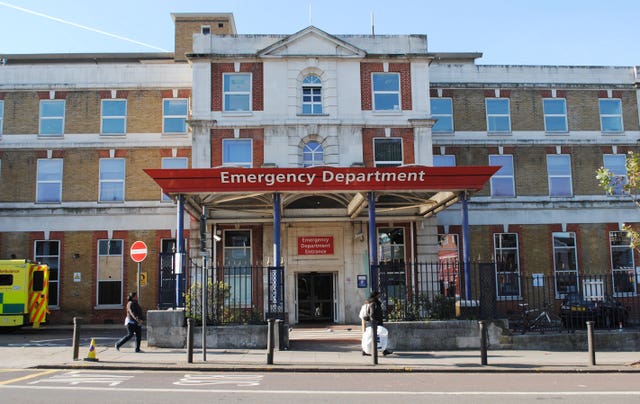Doctor ‘doubted judgment’ after death of teenager Martha Mills from sepsis
Professor Richard Thompson denies all the allegations against him.

A senior doctor has said he “doubted my own judgment” after the death of a teenage girl from sepsis, but told a medical tribunal he did not believe he made any wrong decisions in her care.
Professor Richard Thompson is accused of a number of failings in his treatment of Martha Mills, 13, at London’s King’s College Hospital two days before she died in August 2021.
More than a month earlier Martha had suffered an injury to her pancreas after she fell off a bike while on holiday in Wales.
She was later transferred to King’s College Hospital, one of three locations in the UK that specialise in the treatment of children with pancreatic injuries.

The consultant hepatologist saw Martha on a morning ward round on Sunday August 29 after she had experienced fevers and an increased heart rate in the days before.
She was given intravenous fluids that day as her blood pressure was low, a Medical Practitioners Tribunal Service (MPTS) panel heard.
Prof Thompson said: “She was very much awake and interacting, she was having the fluid. She was clearly not well but she was warm, well perfused, talking and making complete sense.”
The fluids were increased from late afternoon when the blood pressure reading was still low.
The duty registrar called Prof Thompson at home when Martha developed a rash.
Prof Thompson said: “He gave a description of a rash in many places… it was very suggestive of an allergic rash and not a septic rash. I had no reason to disbelieve his description.”
He said the registrar was “at the most experienced end of a junior doctor that you could have” as he was completing his final months of training.
Prof Thompson said he could not recall the figures from blood pressure and blood test readings that were relayed to him before he phoned a consultant colleague to consider whether Martha should be moved to intensive care.
The General Medical Council (GMC) says Prof Thompson gave “outdated” information about those readings which gave the false impression that Martha was stable, and that he also failed to mention her rash.
The GMC also says he should have returned to the hospital to review Martha himself after he was informed about the rash and should have acted sooner in recommending a critical care review.
Martha collapsed the next morning and was moved to intensive care before she was transferred to Great Ormond Street Hospital, where she died in the early hours of August 31.
After her death Prof Thompson decided he would no longer provide inpatient care as he became “extremely cautious”, the tribunal heard.
He said: “I was doubting my own judgment. I don’t believe I made any wrong decisions but I thought it better to remove myself from that environment and contribute to other work in the department.”
His barrister Ben Rich asked: “Did you ever doubt your judgment in Martha’s case?”
He replied: “Absolutely. I think I was on record saying that I felt I made a mistake and other times I said I didn’t.”
Prof Thompson denies all the allegations against him.
The hearing in Manchester continues.
At a 2022 inquest into her death a coroner ruled Martha would most likely have survived if doctors had identified the warning signs and transferred her to intensive care earlier.
Martha’s mother, Merope Mills, an editor at The Guardian, said she and her husband, Paul Laity, raised concerns about Martha’s deteriorating health a number of times but these were not acted on.
The couple later successfully campaigned for Martha’s Rule to give patients, families and carers the chance to easily request a second opinion from a senior doctor in the same hospital in the event of a suspected deterioration or serious concern.
Earlier this year the House of Commons Health and Social Care Committee was told that more than 100 patients had been taken to intensive care “or equivalent” as a result of Martha’s Rule, and that patients, their loved ones or staff had raised concerns about care using the rule on more than 2,000 occasions.





